
Jen Shyu: No More Sequined Dresses
The time that Jen Shyu spent in Taiwan, Indonesia, East Timor, China, South Korea, Cuba and Brazil has broadened her musical language, but she still considers herself an experimental jazz vocalist.

Fay Victor: Opening Other Doors
Fay Victor began her career as a straight-ahead jazz singer but now makes extremely difficult to define music that embraces blues, psychedelic rock, Caribbean popular forms, experimentalism, and even elements of classical music, as well as jazz.

Fay Victor: Opening Other Doors
A conversation in Fay Victor’s Brooklyn apartment March 31, 2015—11:00 a.m. Video presentation and photography by Molly Sheridan Transcription by Julia Lu The word jazz has been used to describe music that has now been made for more than a century. (The origins of the word have been heavily debated, but its use to describe… Read more »

Sheila Jordan: Music Saved My Life
Whatever Sheila Jordan sings she makes completely her own to the point that the line between composition and interpretation is extremely blurry. Now in her late 80s, Jordan is booked for the rest of the year with performances and masterclasses across the USA, as well in Germany, Austria, Italy, and Japan.

Samuel Adler: Knowing What You’re Doing
At 87, Samuel Adler remains steadfast in his determination to preserve and build upon the Western classical tradition–as the composer of six symphonies, five operas, a dozen concertos, tons of sonatas, and ten string quartets (eight of which he still acknowledges), as well as a teacher for 63 years and the author of definitive tomes on orchestration, choral conducting, and sight singing.
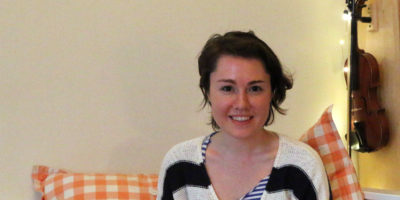
Caroline Shaw: Yes, a Composer, but Perhaps not a Baker!
Caroline Shaw’s compositions are central to her musical identity and, in recent years, she has been venturing far beyond works that she has created for her own performance.
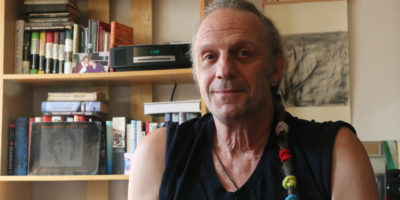
Jerome Kitzke: Stories That Must Be Told
Although his chosen means of expression is music, Jerome Kitzke describes himself as a storyteller. Kitzke’s musical stories have frequently dealt with the plight of Native Americans and other examples of social injustice. If his music inspires people to explore some of these issues on their own he considers himself successful.
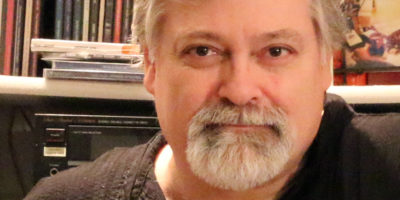
Daron Hagen: The Human Element
For Daron Hagen, working on an opera is so immersive that his life can be fairly neatly divided into chapters corresponding to each of the operas he has written. Nowadays, even though he is principally concerned with being a father, opera continues to inspire him, in part because he sees parallels between writing opera and parenting.

Paul Dresher: Intense Beauty, Visceral Energy, and Sonic Curiosity
Paul Dresher has done work in at least three distinct musical streams with equal vigor and equally significant results. But whether he’s creating a fully notated piece of post-minimalist chamber music, a poly-stylistic score for an intense musical theater work, or an idiosyncratic experiment for one-of-a kind instruments of his own design, he’s always operating with the same basic assumptions about his audience.

Laurie Spiegel: Grassroots Technologist
Electronic music pioneer Laurie Spiegel sees a lot of common ground between the seemingly oppositional aesthetics of folk traditions and the digital realm. But whether she’s creating a computer-realized algorithmic composition, crafting a short piano piece or orchestral score, or jamming on a guitar or a banjo, the most important element in all of her music making is emotional engagement.

Paola Prestini: Following Her Vision
Paola Prestini combines wild imagination and controlled practicality on an almost molecular level—it’s as if both are fused together in her DNA. Whether she’s talking about her own multimedia operas or VisionIntoArt, the interdisciplinary arts production company she co-founded 15 years ago, she tends to think big but she always manages to make it happen.
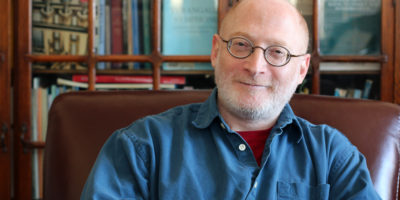
“Which of these Aaron Jay Kernises am I?”
An orchestra sensation at age 23. Published by 30. Then a Pulitzer Prize and a Grawemeyer. Now a biography. What’s left after someone writes up the story of your life? Aaron Jay Kernis just keeps on going, continuing to balance composing, teaching, and raising a family.

Jim Staley and His Home for New Music: Roulette @ 35
Tons of people have devoted their whole life to new music, but few people have done so to the same extent as composer/trombonist Jim Staley, who for more than a quarter of a century devoted his home to it as well. But 35 years on, Roulette has moved boroughs and has gone from being new music in someone’s home to a home for new music.

Pablo Ziegler: Making the Music Dance
Pablo Ziegler, who has been the de facto source for the interpretation of Piazzolla’s music for over twenty years, is an important composer of nuevo tango in his own right. Now based in Brooklyn (though he’s constantly traveling to perform all over the planet), Ziegler has a particularly strong affinity for improvisation and loves to mix tango and jazz.

Miya Masaoka: Social and Sonic Relationships
Whether she’s using a koto as an expressive vehicle for anything from jazz standards to electronic experimentation, writing idiosyncratic music for chorus and now orchestra, or creating music with plants and even insects crawling over her body, Miya Masaoka has been making us look and listen to the world around us in totally new ways for decades.

Dave Malloy: Singing for His Soul (Not His Supper)
Composer Dave Malloy took NYC musical theater by storm with his Natasha, Pierre & The Great Comet of 1812, but his path to Off-Broadway success began in San Francisco’s experimental theater community—and he’s holding on tightly to that non-traditional approach.

Juan Orrego-Salas: I’ve Written All I Have to Write
Juan Orrego-Salas (b. 1919) is the last surviving member of a major group of mid-20th century American composers. He was a protégé of Aaron Copland, Randall Thompson, and Luigi Dallapiccola, and a personal friend of Irving Fine, Lukas Foss, and Pablo Neruda, among others. He also founded the Latin American Music Center. His is an important story in the annals of American music.

“Which of these Aaron Jay Kernises am I?”
An orchestra sensation at age 23. Published by 30. Then a Pulitzer Prize and a Grawemeyer. Now a biography. What’s left after someone writes up the story of your life? Aaron Jay Kernis just keeps on going, continuing to balance composing, teaching, and raising a family.

Marc Neikrug: An Outlet for Emotional Experience
Part of why Marc Neikrug’s compositions have attracted the attention of so many high-profile soloists is that for many years he was a member of that exclusive club himself—a concert pianist who performed standard repertoire with Pinchas Zukerman in most of the world’s major concert halls. Yet for that reason his music hasn’t always been immediately embraced by the new music community. But he’s perfectly O.K. with that.

Andrew Norman: Empowering Performance
For composer Andrew Norman, the process of composing feels like a tug-of-war between opposing forces. From start to finish, he is constantly questioning, and pushing back on his own ideas in his efforts to create meaningful musical experiences for performers and for audiences. He revels in the visceral experiences of music making, and thoughtfully challenges performers to bring their own ideas to the interpretation of his music.

Lisa Bielawa: Fire Starter
It’s difficult to stand anywhere near composer and vocalist Lisa Bielawa and not feel energized by proximity. An extrovert to the core, she acknowledges that her highly social nature has taken her in some specific directions both as a composer and as a musical citizen.

Dan Trueman: Man Out of Time
What could a Hardanger fiddle player and a computer programmer possibly have in common? For Dan Trueman, an expert in both areas, it’s all just technology. And whether the eventual expression of his ideas requires old instruments or the invention of new ones, he is more concerned that the tools employed offer musicians the most engaging musical experience possible.
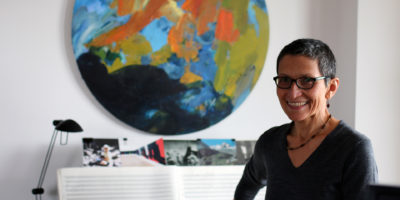
Laura Kaminsky: Every Place Has a Story
For thirty years, in addition to writing her own socially and environmentally charged music, Laura Kaminsky has worked behind the scenes allowing other composers to have an opportunity to get their voices heard.

Morton Subotnick: The Mad Scientist in the Laboratory of the Ecstatic Moment
Morton Subotnick has been living in a technologically transformed world that is “beyond history” since 1959. But the personal musical transformation of this electronic music pioneer did not happen overnight.

